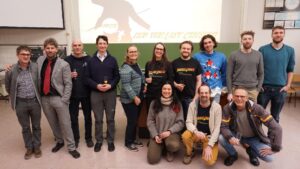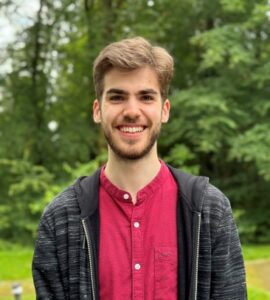“Fortune and glory, kid. Fortune and glory.” (Indiana Jones)

Well, we don’t know about fortune, but there is definitely glory...
We are thrilled to congratulate Dr. Michaela Thiel on achieving a significant academic milestone: the successful completion of her habilitation. This accomplishment provides evidence of her excellent academic achievements and educational proficiency.
In her work, she is setting out a way to measure the thickness of the neutron skin of heavy nuclei with unrivaled precision. This is not only important for the tiny atomic nuclei on Earth but also for exotic celestial bodies like neutron stars, as the same set of laws of physics apply to both.
As part of the habilitation process, Dr. Thiel delivered a captivating public lecture titled 208Pb and the Last Crusade, in which she presented her latest findings.
Dr. Thiel’s habilitation reflects her exceptional scholarship and her continued commitment to pushing the boundaries of scientific understanding.
Congratulations once again, Dr. Michaela Thiel!
 To boldly measure where no one has measured before...
To boldly measure where no one has measured before...
 Felix Heim has successfully completed his bachelor thesis studying the feasibility of measuring the photodissociation of 6Li in electron scattering with the
Felix Heim has successfully completed his bachelor thesis studying the feasibility of measuring the photodissociation of 6Li in electron scattering with the 





 David Ternes successfully completed his bachelor thesis "Simulation of the cross section of the neutron capture reaction of 204Tl and possible measurement of the inverse electro-disintegration in the MESA accelerator" as well as his final exam and was awarded the title of Bachelor of Science (B.Sc.).
David Ternes successfully completed his bachelor thesis "Simulation of the cross section of the neutron capture reaction of 204Tl and possible measurement of the inverse electro-disintegration in the MESA accelerator" as well as his final exam and was awarded the title of Bachelor of Science (B.Sc.).